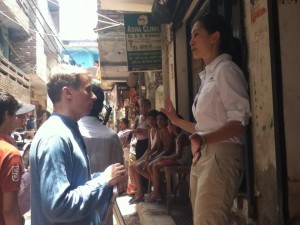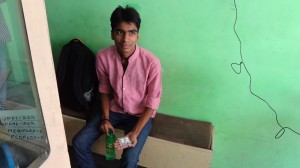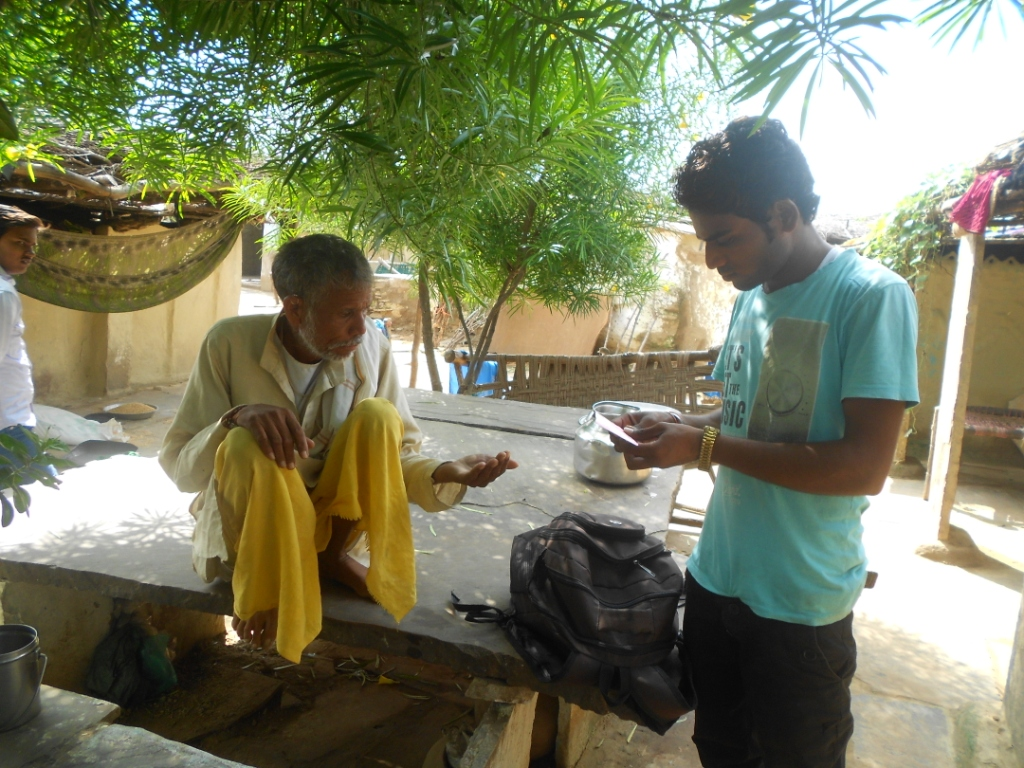
Improving Tuberculosis Treatment with Technology
Written by Audrey Markoff for Microsoft, New England Research and Development center blog.
In Boston we don’t think aboutTuberculosis (TB) often, if at all. Like most Americans, you were probably vaccinated, but the scary truth is no one is exempt from this disease. New infections arise when a contaminated person coughs, sneezes or transmits saliva through the air. As you can imagine, TB is very contagious, especially in poverty stricken areas where people live in close quarters and lack access to medical help.
Bill and his team developed a biometric monitoring system to track clinic visits and treatment progress. The research team collaborated with Operation Asha, which runs 225 TB clinics in India. Currently they are using this technology in 40 centers and plan to implement this technology across all of them. The research question has been answered, but the project is just getting started. This technology can be used and applied to other countries and other diseases. The next steps include replicating and scaling up the reach of biometric monitoring. Another team has already begun executing such programs in Uganda for TB and HIV treatment.
Joining Bill at NERD today was Pamela Woon, an executive producer at Microsoft. She traveled to India to document Bill’s team and the TB treatment solution in a short film“Battling Tuberculosis Using Microsoft Technology”. I was able to catch up with her and hear about her experience filming in India. Her recount of the conditions in rural India make it easier to understand the severity of this health problem.
“Filming in India was a sensory experience like no other shoot I’ve produced or directed in my 15+ years in film and television. In 7 days we filmed in 21 locations, overcoming monsoons, 100+ degree weather, treacherous road conditions, and intoxicating smells of exhaust, garbage and livestock. But I quickly realized that The India Project would become one of my most transformative and enriching life experiences.
Working with an Indian film crew proved highly advantageous, from creating a comfortable environment for the local interviewees, to filming in cramped environments, to understanding proper etiquette for crowd control and dealing with livestock. As we documented how Operation Asha is overcoming barriers to extend healthcare and how Microsoft is deploying technology in some extreme and often inaccessible locations, we had corollary experiences of our own. For example, we visited a health clinic in the Tekhand village of New Delhi. The location is best described as a densely compact room that barely fits six people — a challenge for a clinic and also for a film shoot! With lots of traffic noise, inconsistent electricity, and no indoor plumbing, I had a chance to witness how people working together, supported by technology can truly overcome a very limiting situation.
Still, it was difficult to bridge the gap of the negative social stigma Tuberculosis carries, evidenced by patients opting out at the last second to be interviewed. This made it that much more awe-inspiring when a family welcomed us into the privacy of their home and courageously answered our questions. Their small home chock full of strangers, camera equipment, cords, and lighting gear. It was a privilege to be invited into these homes, often humble, but lacking nothing in love and kindness.”
Today’s event was memorable and informative. Thank you everyone that attended and a big thank you to Bill for sharing the story with us. If you missed it, you can watch the film here and let us know what you think!



